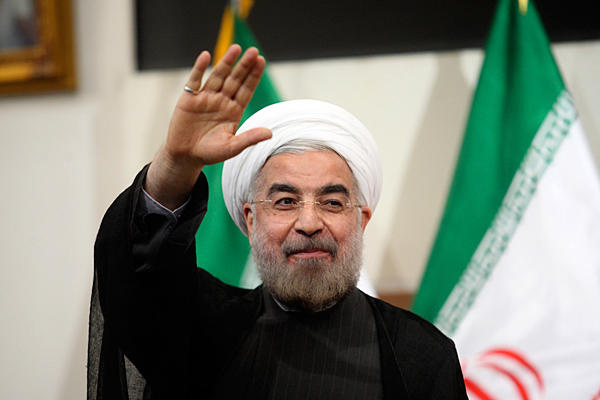Two Years of Rohani Policies

Two years ago, Hassan Rohani came to power with certain expectations inside and outside of the country. In Iran, there were serious concerns about the actions taken by the 9th and 10th administrations regarding foreign policy and the economy. During those years, Iran came into confrontation with a new country every day and, on one hand, more countries allowed themselves to insult, belittle and threaten Iran and, on the other, the simple-mindedness of the officials at that time took Iran to the Security Council and led to the adoption of six resolutions whose implementation were binding for all countries within the framework of Chapter 7 of the UN Charter. As a result of these improper decisions, Iran’s economy, which in 2005 was the fourth economic power of the region, declined to ninth position in 2009 and 14th in 2013. This is while Iran’s Twenty-Year Prospective Document adopted by the Supreme Leader promised that Iran would become the first economic power of the region by 2025. In a country where people received money from the government instead of encouraging production and industry, economic mismanagement pushed the country into a steep slope and the level of production and industry declined to the least possible amount.
After twelve years of movement on the tumultuous political path of the nuclear dossier, it seemed that a deadlock had been created between Iran and the West which would continue for many years and deteriorated the potentials of the country. Other options propagated by the West were either Iran’s surrender or the military option, neither of which could provide Iran’s national interests. Fortunately, none of these options were implemented and the moderate path which was pursued after the election of the new president allowed the professional diplomats to end this deadlock through diplomatic measures and constructive interaction and prevent the acceptance of imposed conditions. Nuclear negotiations are attempts to step out of this deadlock and bypass the conditions imposed by Iran’s enemies. Rohani came to correct these shortcomings and create a new path; a path wherein the foreign policy and the nuclear dossier were considered as the most important issues of the country because all other issues including economy, production, industry, environment, etc. depended on the resolution of this crisis.
Therefore, during the past two years, Dr. Rohani was able to bring Iran and the big powers of the world to the negotiating table with a team led by Dr. Zarif and negotiate the most complicated issue of the world. Today six foreign ministers negotiate with the Iranian team in a respectful manner and in Lausanne they spent many days in that city to talk about this matter and resolve it. And in the end these foreign ministers stood by Iran’s Foreign Minister when he was reading the statement.
The result of the two years of nuclear negotiations is that we have maintained our nuclear industry without even losing one bolt and screw. But we need a period of accepting limitations for confidence-building so that, like other countries, the IAEA can state that Iran’s nuclear program has no military deviation. The interesting point in the nuclear negotiations is that contrary to what it was expected for the duration of negotiations, after two years many positive points have been reached and this is an achievement for the Rohani administration. If negotiations end at the legally set time, the energy and potential of the country will be released, sanctions will be lifted, economy, production and industry will blossom, inside and outside investments will be made and Iran will return to its status as promised in the document.

